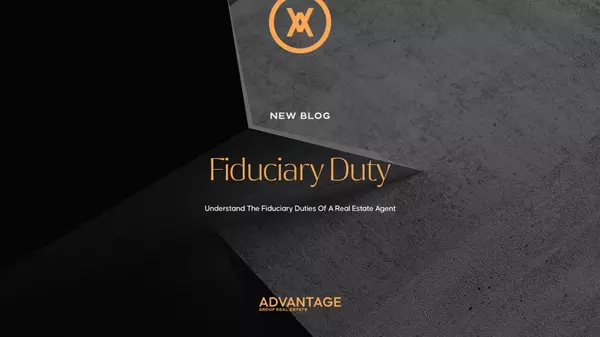What Are The Must Have Documents When Buying A Home In Ontario

Mortgage Pre-Approval: Setting the Stage with the Right Documents
Getting pre-approved for a mortgage is a smart first step in your journey to homeownership in Ontario. This process gives you an idea of how much you can afford and shows sellers that you're a qualified buyer.
Lenders base their pre-approval decisions on a careful review of your financial health. Here are the essential documents to have ready:
Your Equifax Credit Report: The Cornerstone of Your Application
Your Equifax Credit Report provides a detailed look at your financial history and creditworthiness. It includes your credit score, a summary of your past and current debts, and your payment habits. Lenders will analyze this report to understand how responsibly you manage your finances and determine the risk of giving you a loan.
Employment Documents: Proving Your Financial Stability
Lenders need to know you have a reliable source of income to handle your mortgage payments comfortably. Be prepared to show:
- Recent pay stubs show your current income and how consistent your earnings are.
- Proof of income stability: This might include your T4 tax slips from previous years or a letter of employment confirming your position, income, and length of employment.
- Notice of Assessment (NOA): Some lenders may request your CRA Notice of Assessment for additional income verification.
Additional Considerations
While your credit report and employment documents will be most important, lenders might also want to see:
- Bank statements: These show your assets, savings, and spending patterns.
- Investment statements: These highlight any additional assets that might support your application.
The Importance of Preparation
Getting these documents together before you apply for pre-approval will make the process much smoother. Proving your financial readiness will strengthen your position in the housing market and move you one step closer to owning your dream Canadian home.

Understanding the Agreement of Purchase and Sale
With your pre-approval documents in order, it's time to dive into the Agreement of Purchase and Sale (APS). This legally binding contract maps out the terms of your home purchase. Understanding critical components like those below is crucial for making informed decisions about your future home:
The Requisition Date: Protecting Your Investment
The Requisition Date is a specified timeline within the APS. Your lawyer must complete a title search by this date, looking into the property's legal history. This uncovers potential issues like liens, easements, or restrictions that could hinder the smooth transfer of ownership. Having a clean title search is essential! It assures you that the property is free of legal obstacles. If any concerns arise, your lawyer will address them with the seller, allowing you to negotiate solutions or withdraw from the purchase if necessary.
Schedule A: Conditions and Clauses that Matter
Schedule A of the APS outlines "Conditions" and "Clauses" specifically to safeguard your interests. Some common examples worth noting include:
Common Conditions
- Financing Condition: Protects the buyer by making the purchase contingent on securing a mortgage.
- Home Inspection Condition: Gives the buyer the right to an inspection and the ability to negotiate repairs, price adjustments, or withdraw from the purchase based on the findings.
Common Clauses
- Property Tax Adjustment Clause: This clause outlines how property taxes for the year will be divided between the buyer and seller on the closing date. This ensures a fair allocation of the year's tax bill based on ownership timeframes.
- Seller Represents and Warrants No Cannabis: The Seller represents and warrants that, to the best of the seller's knowledge, cannabis has never been cultivated or grown on the property. This representation ensures the Buyer is aware of any potential past cannabis-related activities on the premises.
Remember, the documents you gathered earlier (like your credit report and proof of income) were essential for pre-approval. Understanding the APS ensures you have legal safeguards in place and can confidently proceed with your homeownership journey.

Understanding Your Home Inspection Report
Following the agreement on the Agreement of Purchase and Sale (APS), securing a home inspection is a crucial step in your Ontario homebuying journey. This report is a detailed snapshot of the property's current condition, empowering you to make informed decisions about your potential future home.
Here's what you need to know to navigate your home inspection report:
Limited Liability: Setting Expectations
It's important to understand that a home inspection report doesn't guarantee a perfect property. Inspectors act as expert observers, providing professional opinions based on a visual assessment. They can't see behind walls, dig up the foundation, or predict future problems. The report outlines the condition of the property as observed during the inspection.
Grading the Issues: Severity Matters
The report will detail any issues identified during the inspection. These can range from minor cosmetic blemishes like chipped paint to potentially more severe structural concerns. Don't panic if you see a list – understanding the severity is vital.
The inspector will categorize the issues based on their potential impact:
- Minor: These are cosmetic or low-risk issues, quickly addressed through repairs or maintenance.
- Major: These could be problems like a leaky roof or faulty electrical wiring that require significant maintenance.
- Safety Hazards: These critical issues pose immediate danger and need urgent attention.
Knowing the severity of each finding allows you to prioritize repairs, factor potential costs into your negotiation with the seller, or even withdraw from the purchase if the issues are too significant.
Your Roadmap to a Healthy Home
A home inspection report is more than just a formality; it's a valuable tool for understanding your potential new home's "health." Providing a transparent picture of the property's condition empowers you to make informed decisions about your investment. Feel free to ask your inspector questions and use their expertise to navigate potential repairs or negotiate a fair price.
Remember: Consulting with a qualified home inspector is highly recommended. They can explain their findings in detail and help you understand how these issues might impact your future as a homeowner.

Closing Day: Navigating Documents to Secure Your Home
The final stretch of your Ontario homebuying journey centers on the signing and exchanging of essential closing documents. These documents, including the deed, mortgage paperwork, and property tax statements, formally solidify your property ownership.
Here's why a careful review of these documents is crucial:
- Confirming Compliance: Meticulously reviewing closing documents ensures that all the terms of your Agreement of Purchase and Sale (APS) have been met. This protects you from potential misunderstandings or last-minute complications.
- Protecting Your Investment: Understanding each document confirms you are making a sound financial decision. Clarifying any questions now offers peace of mind for the future of your investment.
- Building a Solid Foundation: Each document is crucial in transferring ownership and establishing your new home's legal and financial foundation. The closing process is the final checkpoint to validate these aspects.
The Takeaway
Don't be intimidated by the process. Your real estate agent, home inspector, and lawyer will guide you through these documents, explaining their significance and protecting your interests.
By approaching the homebuying process with preparation and understanding, you'll cross the threshold of your new home with the confidence of a well-informed homeowner.
Categories
Recent Posts











"My job is to find and attract mastery-based agents to the office, protect the culture, and make sure everyone is happy! "


